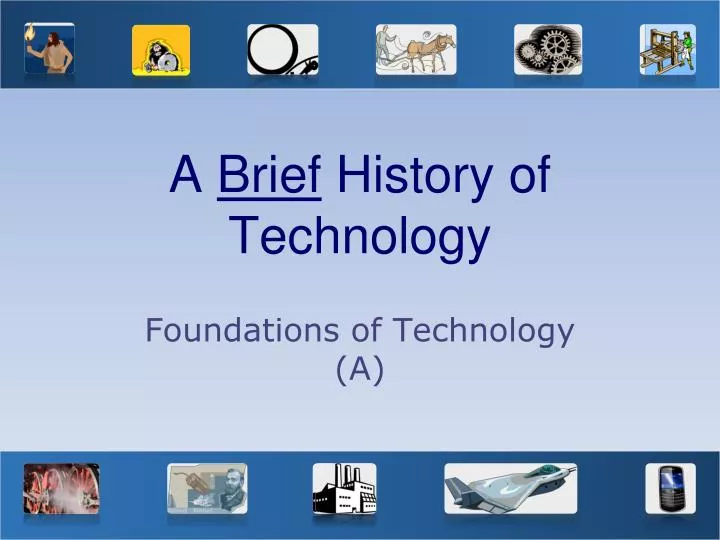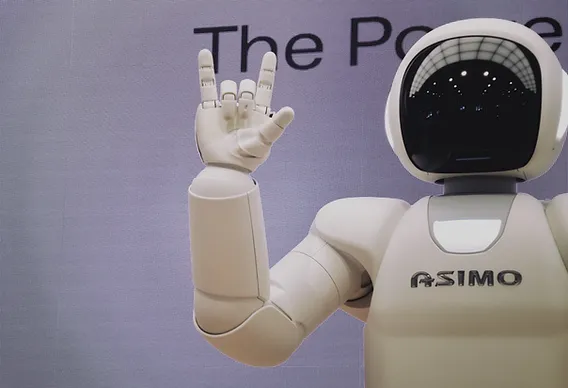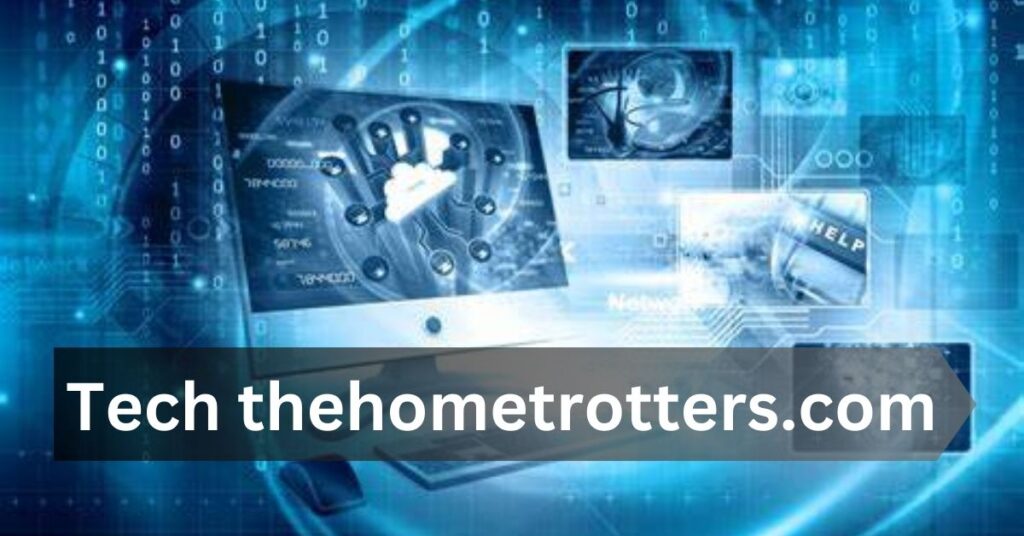In the ever-evolving world of technology, staying update with the latest innovations is essential to understanding the direction in which our world is headed. Whether you’re a tech enthusiast, an entrepreneur, or someone interested in home and lifestyle improvements, staying ahead of the curve can provide a competitive edge. The Home Trotters offers an ultimate guide to the coolest ideas and the most impactful technological advancements through expert insights, making it your go-to platform for discovering cutting-edge technologies that could change the way you live, work, and play.
Introduction: A Gateway to the Future of Technology

At The Home Trotters, technology isn’t just about gadgets—it’s about integrating innovative solutions into your daily life. The platform delves deep into various tech fields, from smart homes to sustainable living, providing content that covers the spectrum of the latest inventions, trends, and tools. Whether you’re a beginner or an experienced tech user, the site’s articles are designed to cater to a wide audience, offering easy-to-understand explanations of complex tech topics.
With a focus on practical applications of technology, The Home Trotters ensures that its readers are not just passive consumers but active participants in understanding how tech can be harnessed for a better future. The site provides detailed guides, expert opinions, and regular updates on the best tech innovations across multiple sectors. This article takes you through some of the key areas where tech innovations are making waves, backed by historical context, pros and cons, and insights into future possibilities.
A Brief History of Technological Innovations

To understand the significance of the latest tech innovations, it’s helpful to look at the history of technological advancements that have led us to where we are today. Technology has always been a driving force behind human progress, and its evolution can be divided into several key milestones:
- The Industrial Revolution (18th to 19th Century): The introduction of machines, steam engines, and mass production methods marked the beginning of rapid technological development. Innovations in manufacturing and transportation laid the groundwork for modern industry.
- The Digital Revolution (Late 20th Century): The invention of computers and the rise of the internet transformed nearly every aspect of life. Personal computers, smartphones, and the internet changed how we communicate, work, and consume information.
- The Current Age (21st Century): Today, we’re experiencing an explosion of technological advancements. Artificial intelligence (AI), the Internet of Things (IoT), virtual reality (VR), and sustainable tech are changing the way we interact with the world. Tech is increasingly intertwine with daily life, creating more efficient, sustainable, and personalized experiences.
The Latest Tech Innovations: Where We Stand Today

The Home Trotters keeps its finger on the pulse of the latest tech developments, bringing you in-depth articles on the most exciting innovations. Some key trends and innovations currently dominating the tech space include:
1. Smart Homes and IoT
The concept of smart homes has evolved dramatically, with smart devices now being commonplace in many households. Through the Internet of Things (IoT), everyday objects are connected to the internet, allowing for automated control. Smart thermostats, lights, security systems, and appliances enhance convenience, energy efficiency, and security.
Pros:
- Increased convenience and control.
- Energy savings through automation.
- Improved home security with real-time monitoring.
Cons:
- Privacy concerns with constant data collection.
- High initial costs for setting up smart systems.
- Potential for system malfunctions or hacking.
2. AI and Machine Learning
Artificial intelligence (AI) and machine learning (ML) are transforming industries by enabling machines to simulate human intelligence. These technologies are used in applications such as predictive analytics, customer service automation, and personalized recommendations.
Pros:
- Enhanced efficiency and productivity.
- Ability to process vast amounts of data in real time.
- Automation of repetitive tasks.
Cons:
- Job displacement due to automation.
- Ethical concerns regarding AI decision-making.
- Potential for bias in machine learning algorithms.
3. Sustainable Technologies
With growing concerns about climate change, sustainable technologies are becoming increasingly important. Innovations like solar panels, wind turbines, and energy-efficient buildings help reduce carbon footprints. Additionally, there is a growing interest in sustainable fashion, eco-friendly appliances, and electric vehicles (EVs).
Pros:
- Reduction in environmental impact.
- Lower long-term energy costs.
- Contributions to a sustainable future.
Cons:
- High upfront investment for many green technologies.
- Limited infrastructure for renewable energy in some areas.
- Potential challenges in recycling certain materials.
4. Virtual and Augmented Reality (VR & AR)
Virtual reality (VR) and augmented reality (AR) are bridging the gap between the digital and physical worlds. VR is immersing users in fully virtual environments, while AR overlays digital information onto the real world. Both technologies are finding applications in gaming, education, healthcare, and training.
Pros:
- Immersive learning and training experiences.
- Enhanced entertainment and gaming.
- Applications in medical treatments and rehabilitation.
Cons:
- High cost of VR and AR equipment.
- Motion sickness or discomfort for some users.
- Limited content and applications in certain industries.
5. Blockchain and Cryptocurrencies
Blockchain technology, best known for powering cryptocurrencies like Bitcoin and Ethereum, offers secure and transparent methods for conducting transactions. It’s also being explored for use in supply chain management, digital voting, and data security.
Pros:
- Increased security and transparency in transactions.
- Decentralized control, reducing risks of fraud.
- Potential for revolutionizing industries beyond finance.
Cons:
- Regulatory challenges in many regions.
- Volatility of cryptocurrency markets.
- Energy-intensive nature of blockchain mining.
Pros & Cons of Embracing the Latest Tech Innovations

While the latest technological advancements promise great benefits, they also come with their own set of challenges. Here’s a look at some of the pros and cons:
Pros:
- Increased efficiency and convenience: From smart homes to AI, many innovations are designed to save time and effort, making everyday tasks easier.
- Sustainability: Green technologies help reduce environmental impact, contributing to a more sustainable future.
- Better decision-making: AI and machine learning provide valuable insights that can help businesses and individuals make informed decisions.
- New opportunities: The tech sector creates new job opportunities and drives economic growth in various industries.
Cons:
- High costs: Many new technologies require significant investment, both for individuals and businesses.
- Privacy concerns: With increased connectivity and data collection, maintaining privacy becomes a growing issue.
- Dependency: Over-reliance on technology can lead to problems when systems fail or are compromised.
- Job displacement: Automation and AI technologies are threatening traditional jobs, leading to concerns about unemployment.
Conclusion: The Future of Technology and Its Role in Our Lives
The pace of technological innovation is faster than ever, with new inventions and ideas constantly reshaping our world. From making homes smarter to reducing environmental impact, technology is improving our daily lives in countless ways. However, as with any major change, it’s important to weigh the benefits against the potential risks and challenges.
The Home Trotters offers invaluable insights into the latest tech innovations, helping readers stay informed and make educated decisions about the technologies they integrate into their lives. Whether you’re exploring new gadgets, considering eco-friendly solutions, or learning about AI advancements, the site provides expert advice to guide you on your tech journey.
Q&A: Your Questions About Tech Innovations
Q1: How can smart home technologies improve my energy efficiency? A1: Smart home technologies, such as smart thermostats and energy-efficient appliances, allow you to monitor and control your energy use remotely, making it easier to reduce consumption and save money on utility bills.
Q2: Are AI and machine learning safe to use? A2: While AI and ML have the potential to offer many benefits, they also raise ethical concerns, especially regarding privacy and bias. It’s essential to ensure these systems are used responsibly and ethically.
Q3: What are the most promising sustainable technologies for the future? A3: Solar power, wind energy, electric vehicles, and energy-efficient buildings are among the most promising sustainable technologies that are expected to shape the future of energy and sustainability.
Q4: Will VR and AR replace traditional learning methods? A4: While VR and AR provide immersive learning experiences, they are unlikely to fully replace traditional methods. Instead, they will complement and enhance existing education and training approaches.








